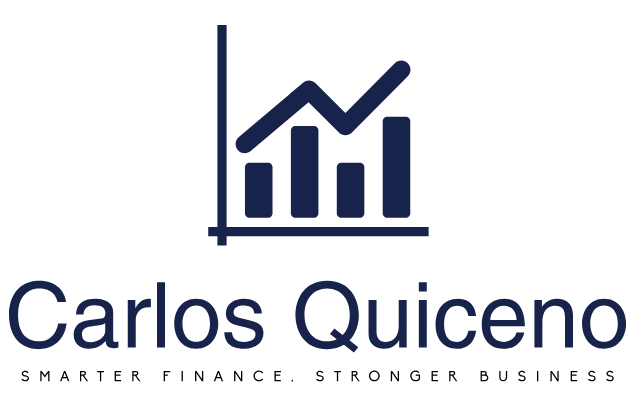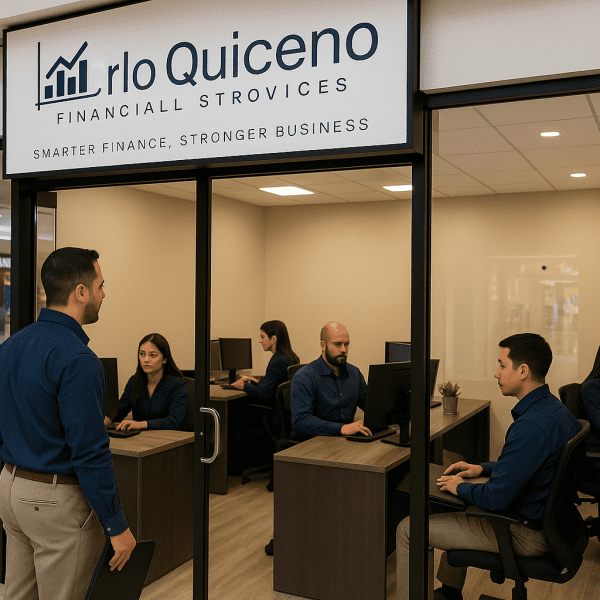Business Financing: Options and How to Choose the Best One for Your Company
Business Financing: Options and How to Choose the Best One for Your Company
Securing the right financing is crucial for the growth and sustainability of any business, whether it’s a startup looking to expand or an established company aiming to fund a new project. With various options available—from bank loans to venture capital—it can be challenging to determine which one best suits your company’s needs. In this article, we’ll explore the primary business financing options and help you decide which one is best suited for your company based on its growth stage.
1. Bank Loans
Bank loans are one of the most traditional forms of business financing. Companies can borrow money from financial institutions to cover specific needs such as equipment purchases, facility expansion, or working capital.
Advantages:
- Fixed or predictable interest rates make financial planning easier.
- You don’t have to give up ownership or control of your business.
Disadvantages:
- Strict eligibility criteria, including a strong credit history and collateral requirements.
- Repayment of principal and interest can affect cash flow.
When is it ideal?
Bank loans are ideal for businesses that need short- to medium-term capital and have stable revenue to ensure repayments.
2. Venture Capital
Venture capital involves investors providing funding in exchange for equity in the company. This type of financing is common among startups with high growth potential, especially in innovative industries like technology.
Advantages:
- Investors bring not just capital but also valuable expertise and connections.
- No obligation to repay the capital if the business fails.
Disadvantages:
- You give up a portion of control and ownership in the business.
- Investors expect high returns, which can increase pressure for rapid growth.
When is it ideal?
Venture capital is ideal for early-stage startups or businesses in rapid growth phases that need significant amounts of funding to develop products or scale quickly.
3. Factoring
Factoring is a financing option where a company sells its accounts receivable (outstanding invoices) to a financial institution in exchange for immediate cash. This provides liquidity without waiting for customers to pay.
Advantages:
- Immediate cash flow improvement without taking on debt.
- It’s easier to qualify for factoring than for traditional loans.
Disadvantages:
- Factoring can be expensive, especially if customers take a long time to pay.
- Not every business can access this option easily.
When is it ideal?
Factoring is ideal for companies with inconsistent cash flow or that need fast access to capital without incurring debt. It’s especially helpful for businesses that manage large volumes of sales on credit.
4. Crowdfunding
Crowdfunding has gained popularity as an alternative funding method, especially for startups and innovative projects. Through online platforms, businesses can raise funds directly from a large pool of investors or donors.
Advantages:
- Flexible and accessible, especially for creative or innovative projects.
- Validates market interest in the product or service before its launch.
Disadvantages:
- Success is not guaranteed and can require significant effort to promote the campaign.
- Some crowdfunding platforms charge fees on the funds raised.
When is it ideal?
Crowdfunding is excellent for early-stage startups looking to validate their ideas or products before launching, or for projects that seek funding without traditional financial institutions.
5. Lines of Credit
A line of credit is a flexible financing option that allows businesses to access funds up to a certain limit. Interest is only paid on the amount withdrawn, making it an attractive option for covering short-term capital needs.
Advantages:
- Flexibility to use funds as needed.
- Interest is only charged on the money used.
Disadvantages:
- Interest rates are typically higher than traditional loans.
- A strong credit score is required for favorable terms.
When is it ideal?
Lines of credit are useful for covering unexpected expenses or temporary cash flow shortages. They are particularly suitable for seasonal businesses or companies with variable income.
6. Grants and Government Funding
Some businesses may qualify for grants or government-funded programs that don’t require repayment. These options are often available for specific industries or businesses that meet certain criteria, such as technological innovation or social impact.
Advantages:
- No repayment or interest.
- May offer additional support, such as advisory services or resources.
Disadvantages:
- Strict eligibility requirements and lengthy application processes.
- The amount of funding available can be limited.
When is it ideal?
Grants and government funding are ideal for businesses operating in priority sectors or developing research and development (R&D) projects.
How to Choose the Best Financing Option for Your Business
Selecting the right financing option depends on several factors, including your company’s current stage, its ability to generate revenue, and your growth objectives. Here are some key aspects to consider:
- Stage of Growth: Startups may benefit more from venture capital or crowdfunding, while established companies might lean toward bank loans or lines of credit.
- Cash Flow: If your business struggles with liquidity, factoring or lines of credit may be the best options.
- Control of the Business: If you want to retain full control of your business, bank loans or factoring are better than venture capital.
- Repayment Timeline: If you need long-term financing, bank loans or venture capital may be suitable. For short-term needs, lines of credit or factoring are more convenient.
Conclusion
There is no one-size-fits-all financing solution for businesses. The key is to assess your company’s specific needs and choose the option that provides the necessary capital without compromising long-term financial stability. At Carlos Quiceno Financial Services, we help you evaluate your financing options and find the one that best fits your situation. Contact us today for personalized advice!













